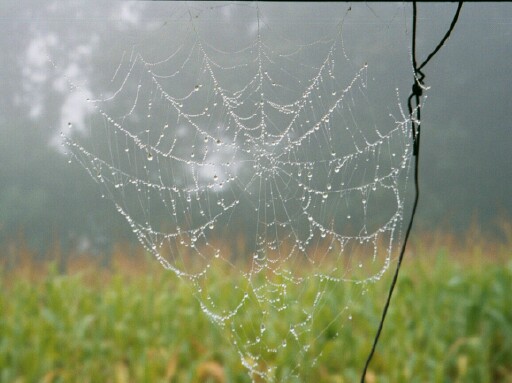
Do you remember "running through the sprinkler" as a child on a hot summer's day? Or the warm taste of a fresh-baked loaf just taken from the oven in December? Perhaps the smell of the dry leaves in the pale golden light of an autumn morning? Have you seen the mist rising from a river on a spring morning? All of these are hokku experiences--they are experiences of the senses occurring at a certain point in the season of the year, and there are many, many more that you will not only recall but will experience with each new day.
Hokku is quite simply the art of putting these seasonal sensory experiences into as few words as are necessary to clearly convey the experience without either confusing the reader with too few words or obscuring the experience with too many.
To write hokku one must keep the self out of the way so that nature may speak directly. Hokku is the experience itself, before thought adds all kinds of things to it--thoughts and frills and commentary.
Unlike contemporary haiku, which is heavily influenced by Western poetry and concepts, hokku uses ordinary English punctuation to guide the reader gently through the brief three lines. It also avoids topics that tend to disturb or trouble the mind.
In Japan, where it originated, there were many fine writers of hokku--Onitsura, Basho, Gyodai and others. And though hokku has gone far beyond its origins in Japan, it nonetheless keeps the same spiritual basis of poverty, simplicity, selflessness and transience, though it is written now in ordinary, everyday English.
In learning hokku, it is best not to think of it as poetry. Instead think of it as an experience of the senses happening in a particular seasonal context. Hokku are both written and read within the appropriate season. If, on reading a hokku, you literally feel the experience it presents, without having to think about it or interpret it, then the hokku has succeeded.
Not everything is appropriate for hokku--only those experiences in which we feel something that goes beyond words, something in which we sense a significance that cannot be spoken. Paradoxically, these experiences are in themselves the ultimate of simplicity, as in this hokku by Buson.
Lighting one candle
With another candle;
The spring evening.
Hokku is not just a hobby, nor is it a way to make a name for one's self as a "poet." It is a way of life, a kind of spiritual path in which gradually all that covers the essence of our day-to-day lives is removed as all the clutter and dust of the mind is gradually discarded. One approaches hokku in this manner, and as one learns one matures, so that learning hokku is not a matter of just absorbing the basic principles and techniques in a week or a month or a year; it is rather a matter of beginning to live hokku, so that between one's writing and one's living there is no difference. And that is the work of a lifetime.
David Coomler (2003)
![]()

![]()